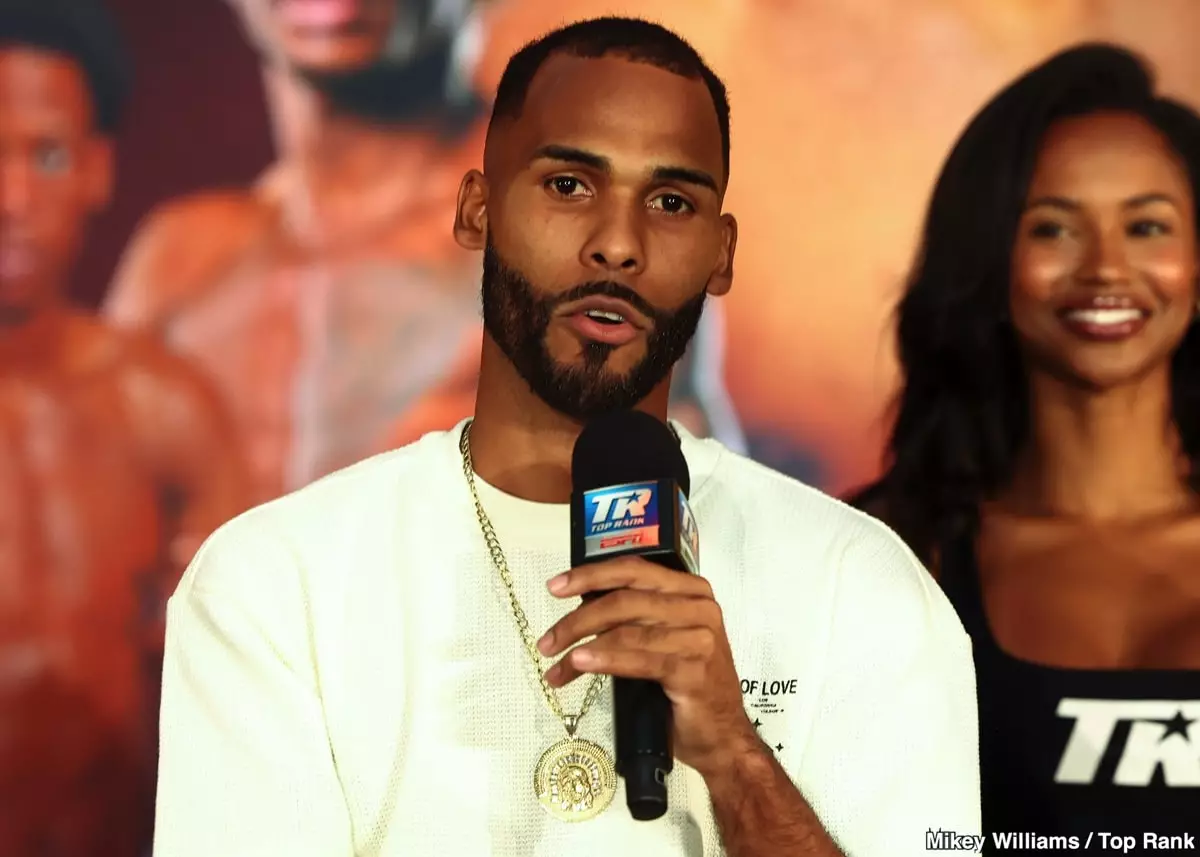In boxing, the stakes are invariably high, and an athlete’s commitment extends far beyond mere training exercises in the ring; it encompasses discipline and sacrifice in all aspects of life. This truth became painfully evident when former WBO lightweight champion Keyshawn Davis significantly missed the weight limit ahead of his scheduled bout last Friday. By coming in over four pounds heavy, Davis materially affected not just his own career trajectory but also the future of his opponent, Edwin De Los Santos, who was poised to seize an extraordinary opportunity to add the WBO belt to his resume.
Davis’s weight blunder not only diminished his own chances for a triumphant comeback but also robbed De Los Santos of the chance to fight for a title, forcing him into an uncomfortable position of uncertainty. Over the years, many fighters—originally aspiring champions—have seen their dreams dashed due to similar failures. The psychological effects on a competitor who has dedicated countless hours to training cannot be overstated; they endure the weight of both expectations and disappointment.
The Domino Effect: Relationships at Stake
Following the bout that never took place, tensions boiled over, leading to Edwin De Los Santos parting ways with his promoter, Sampson Lewkowicz. This split underlines a larger issue inherent within the boxing world—how easily relationships can fracture in the face of crisis. De Los Santos expressed frustration at Lewkowicz for prioritizing safety over financial opportunities, noting he was willing to step into the ring even under adverse conditions, stating, “I wanted to fight Keyshawn no matter the circumstances.”
However, Lewkowicz defended his position passionately, arguing that placing De Los Santos in harm’s way was not a risk worth taking. “Sometimes a warrior doesn’t understand that his life could be on the line,” he stated, emphasizing the stark reality of weight discrepancies. With Davis potentially weighing as much as 165 pounds on fight night while De Los Santos would have been at around 147 pounds, it is safe to presume that events could have taken a disastrous turn.
The financial implications of this fallout were immense as well. De Los Santos had aimed for a larger purse, made possible by Davis facing financial penalties for the weight mismanagement. Instead, he left the event with unresolved aspirations and a mere fraction of the anticipated compensation.
The Emotional Toll of Deprivation
The personal and professional ramifications of the failed fight extend beyond mere disappointment; it speaks to a fundamental issue in boxing that is often overshadowed by the glitz and glamor of the sport. Athletes pour their heart and soul into their craft, and with each miscalculation—be it a missed weigh-in or an unexpected split with a manager—their psychological outlook can begin to unravel.
Imagine the emotional turmoil experienced by De Los Santos—a fighter whose last bout against Shakur Stevenson was over a year ago—now left chasing the elusive dream of championship glory without a clear path ahead. In a sport that thrives on visibility and opportunities, inactivity can lead to stagnation, and battles can quickly transform into internal conflicts of worth and purpose.
De Los Santos is actively seeking new promotional representation, a move laden with uncertainty. The competitive landscape within boxing often rewards fighters who are not just skilled but also visible and marketable. Signing with a powerful promoter can make or break a career, and the pressure to make the right decision can weigh heavily on an athlete’s psyche.
Charting the Path Forward
Moving forward, boxing must confront the ramifications of weight management issues, particularly through the lens of how they impact the lives of fighters. Changes need to be instituted not merely to prevent mishaps like Davis’s but to protect fighters from themselves in moments of desperate ambition.
As the dust settles from this troubling scenario, one thing remains clear: the boxing world must prioritize the health and safety of its athletes above all else. For De Los Santos, the next steps are fraught with challenges. His journey illustrates the precarious nature of boxing, where aspirations can easily slip away from one’s grasp, thus inviting a deeper reflection on what it means to be a fighter in today’s landscape.


Leave a Reply